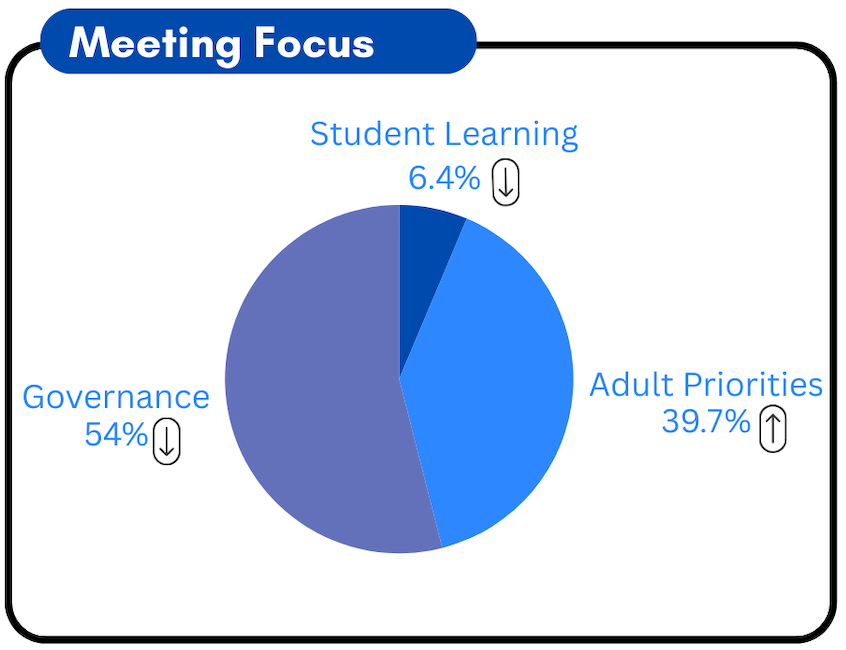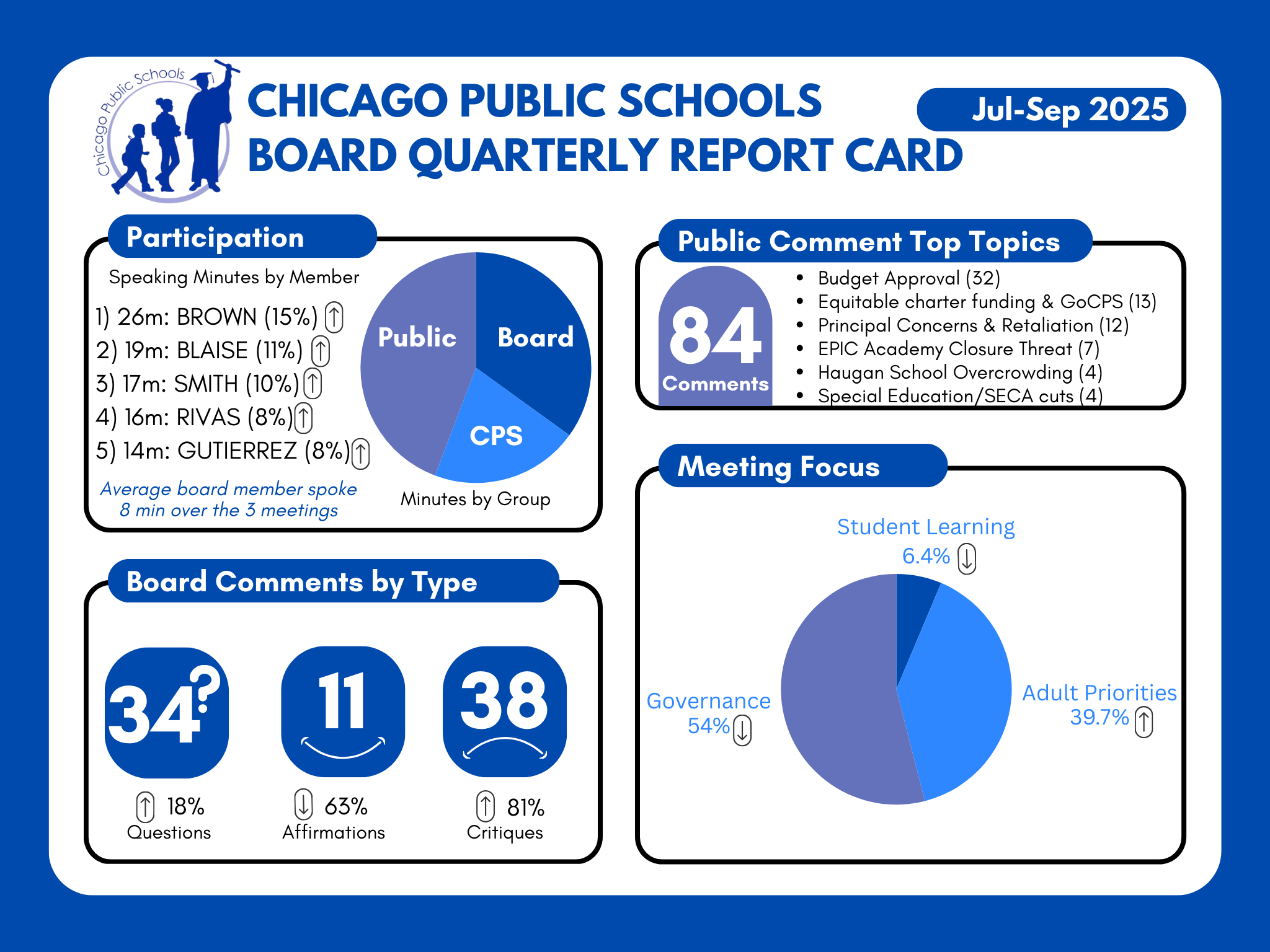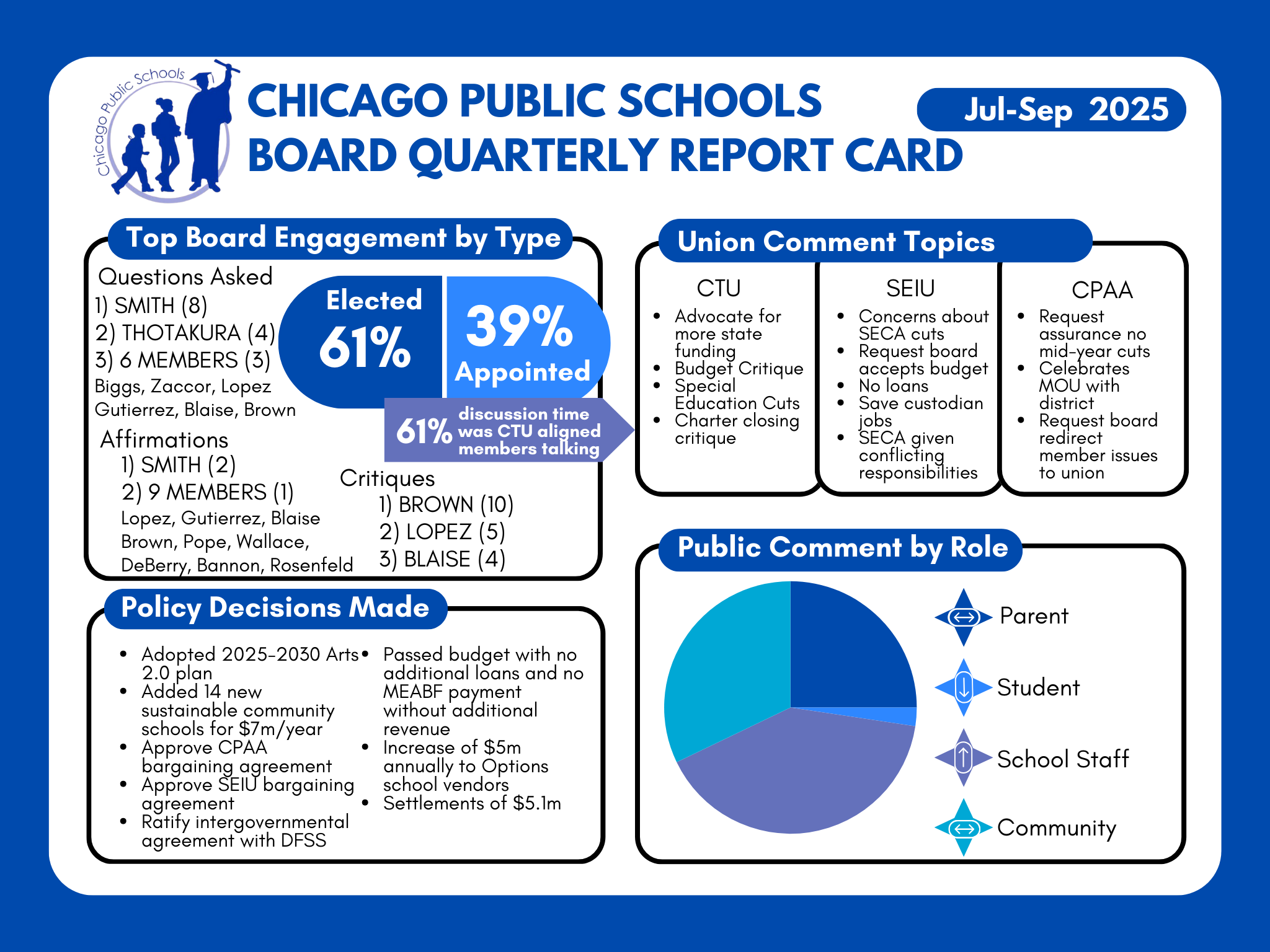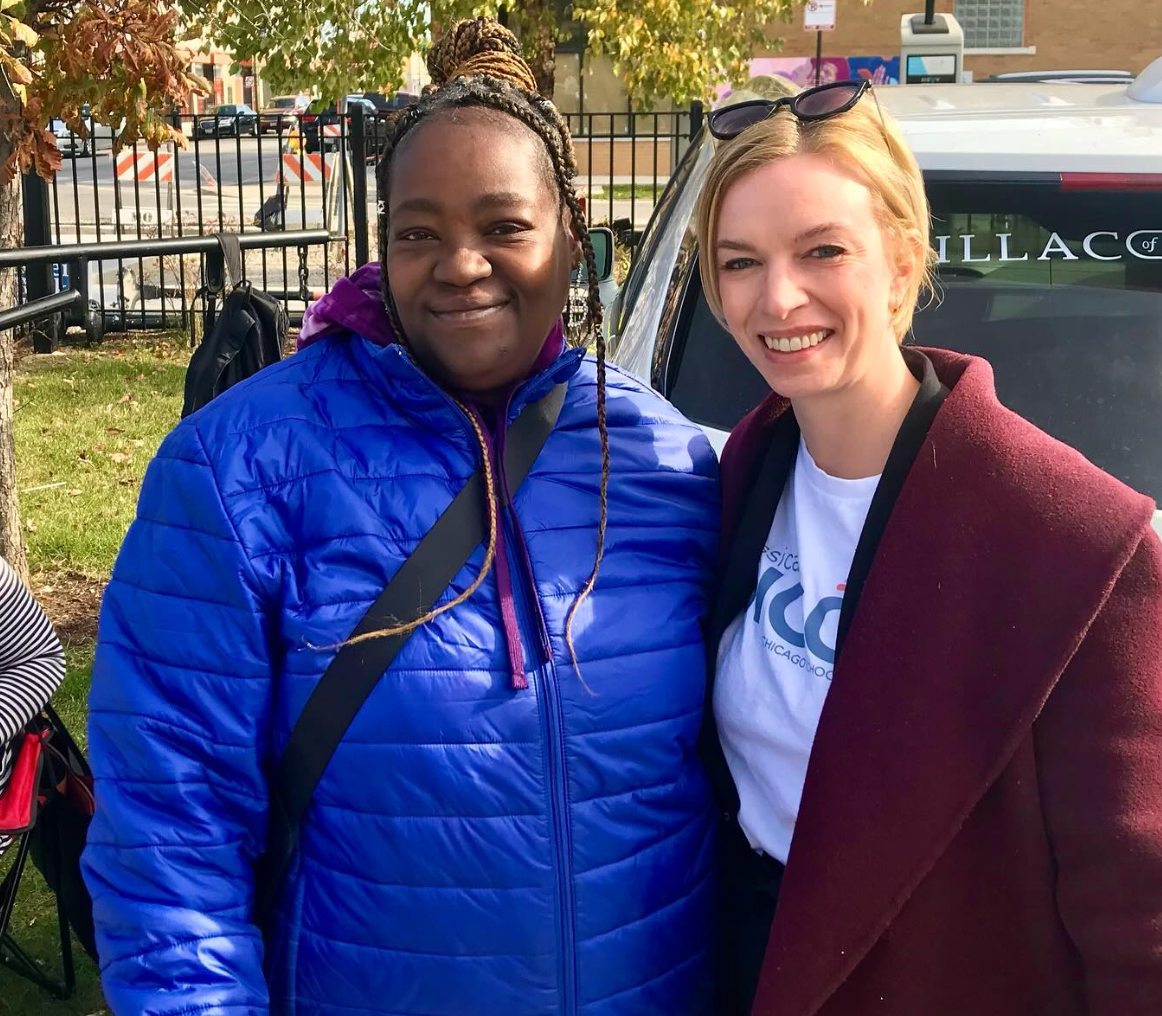Grading the School Board: Q3
In Q3, the Chicago Board of Education began to hit its stride as a governing body. But focus on student learning declined while the board focused on passing a budget.

Once again, education consultant Adam Parrott-Sheffer has meticulously coded and analyzed the Chicago Board of Education's discussion at board meetings and public comments to the board to track trends and patterns. The catch-all category "adult priorities" took up more of the board's public time over the last three months. This reduced the time spent on governance and student outcomes.
Nevertheless, Parrott-Sheffer informally observed the quality of the governance conversation improved. "It was a quality change in terms of the sophistication of questions, especially as it related to connecting student learning to [school district] finance," he noted. This change was evident among a wide swath of board members "of all persuasions."
Now let's go deeper into Parrott-Sheffer's analysis.

More evidence for the board's governance growth comes from the shift in the types of comments and questions board members offer at meetings. "There were more questions asked, and the questions were more focused and illuminating than in previous quarters," said Parrott-Sheffer. At the same time, the majority of board members did not ask any questions during public board meetings. (Parrott-Sheffer noted they could be asking more questions in agenda review committee meetings, which he does not track.)
The number of critical comments rose sharply, largely due to conversations related to the budget. Parrott-Sheffer observed that affirmations are equally distributed among board members, but three members dominated the critiques in Q3: Brown, Blaise, and Lopez.
The budget dominated public comment in Q3.

Notably, student speakers during public comment and focus on student learning declined over the summer quarter. Parrott-Sheffer hopes student participation and focus on student learning will increase in Q4, and pointed to the September board meeting as offering early signs that might be the case. The world language presentation included student voice. Newly-appointed student board member Destiny Singleton, a senior at Ogden International High School, launched her term with insightful comments about her experience with the GoCPS admissions portal.
Though it's not included in the report card, Parrott-Sheffer pointed out that three community members spoke at board meetings about having trouble setting up meetings with board members. "They are reporting that they do not get a response back when they email, " he said. "I have independently heard similar concerns from others trying to use the district process for scheduling."
InFocus: Jessica Biggs

The instant Jessica Biggs walked into Hyde Park's Roux Diner yesterday, she was warmly welcomed by a friend who also lives in her district. Effusive in private, she's more guarded in public. She takes her time with questions, pausing to reflect before answering. In board meetings, she's not highly visible, but her impact is strongly felt behind the scenes.
As the chair of the school board's transition team, her top priority is"making sure the superintendent search moves forward and is successful." The board has completed second-round interviews with candidates and will debrief those interviews during closed session today. The next step is for candidates to meet with a "confidential community panel." Biggs expects the search to wrap up in December.
Priority Two: moving forward on the CPS strategic plan by supporting Interim Superintendent/CEO Macquline King to fill key leadership positions, starting with the Chief Education Officer. "Right now, we have a lot of key leadership positions that are responsible for monitoring and moving the work that are not currently filled," Biggs noted.
"I think there's nearly universal agreement among key folks across the district that the strategic plan is the way they want the district to be moving and working," said Biggs. "So I would like us to get to the work of realizing it on the ground." For example, without a Chief Education Officer in place, it's harder to help everyone understand both the mechanics of the new accountability system (such as the new school profiles) and how to use the information it provides to inform strategies for school improvement.
Regarding the possible reorganization of school networks, Biggs said, "We have had a couple of discussions with Dr. King where we have asked that this process slow a bit." The board has asked for more regular communication with King and encouraged her to develop "a broad and diverse core group of advisors."
Finally, she wants to be part of the board's work to find "sustainable solutions to our budget challenges" and help develop an actionable legislative agenda that can get traction in Springfield. She'd like to see that agenda include efforts to reduce Chicago's inequitable pension burden compared to all other Illinois districts, but notes that might not require a merger. She'd also like to see the state fully fund its pot of "mandated categorical" grants to partially reimburse school districts for legally required services like special education, transportation, and free meals.
Soundbite: "Chicago is not for the faint of heart, and there are exceptional people who feel like they can really make a difference here."
Agenda Review Committee Preview
Today, the board faces another doorstop of an agenda--more than 2000 pages including budget-neutral transfers of funds and construction contracts--and a very long meeting to debrief the second-round superintendent interviews, Biggs predicts. But there are placeholders for the two highest-profile items: charter/contract school renewals and a resolution regarding the protection of school-based custodians.
During public participation, expect a speaker to request temporary changes to the attendance policy to help students affected by ICE's Operation Midway Blitz. Here is the request that has circulated on social media:
A group of dedicated LSC members, parents, and teachers [are] messaging our networks asking that everyone please reach out to their Board of Ed reps and request that they immediately pass a temporary emergency policy making all absences excused and not requiring a reported reason for the absence until further notice.
As we understand the current CPS attendance policies, this action must be taken at the district level. Students, parents, and caregivers need to be able to keep themselves safe, and our existing system has district-level mandates and processes - some of which include reporting families to [the city Department of Family and Support Services]- for x consecutive absences, that limit excused absences for illness, and so on. Communities should not be required to disclose their immigration status and schools should not be maintaining any data points that might risk identifying targeted students and families.
We would also like to see schools ensuring absent students are getting their assignments and supports and to see the district explore ways they could make the virtual academy available or offer remote tutoring but these are secondary requests and ones that require school level and community collaboration.
Comments ()